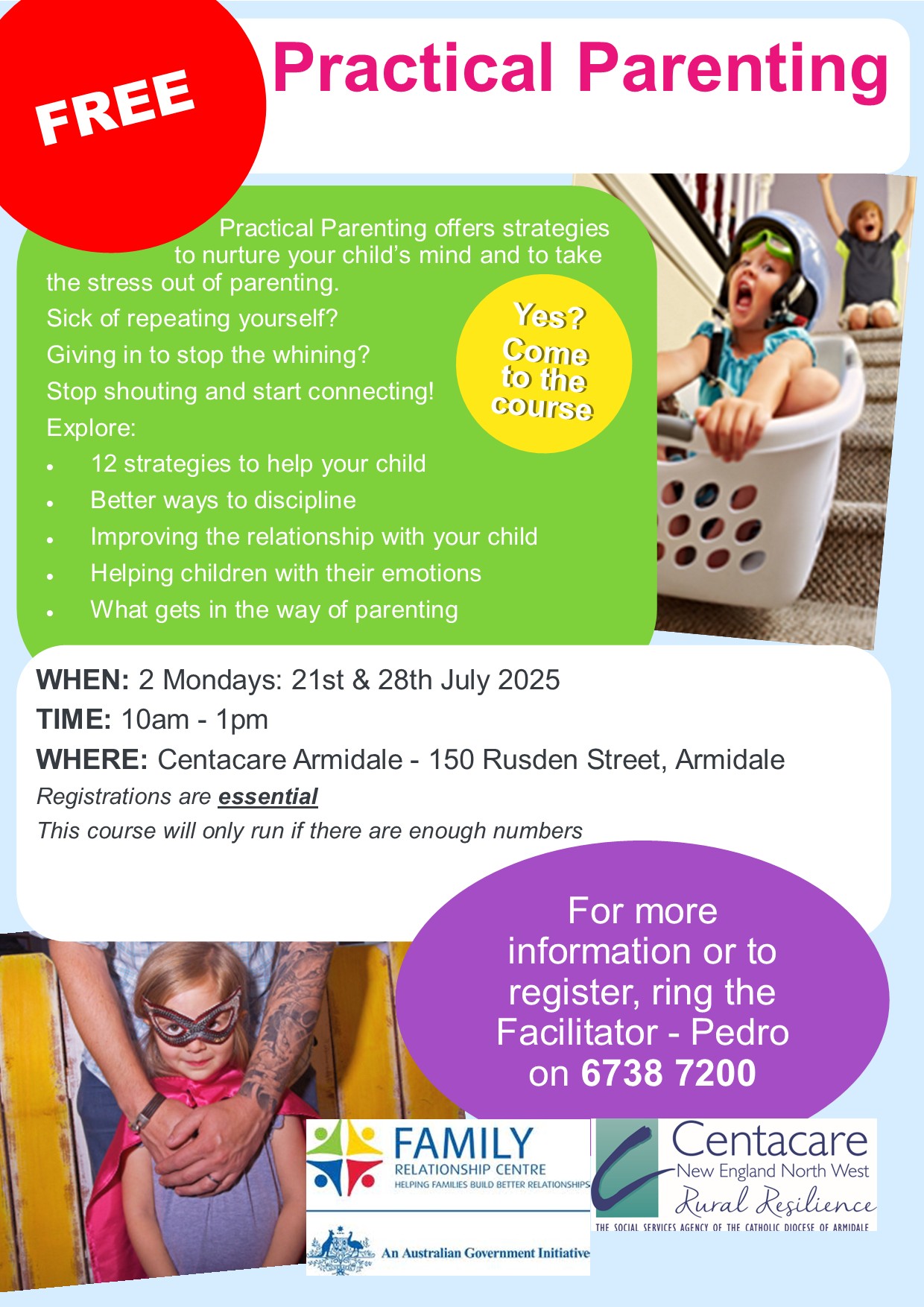Practical Parenting Course
Giving in to stop the whining?
Stop shouting and start connecting!
Explore:
• 12 strategies to help your child
• Better ways to discipline
• Improving the relationship with your child
• Helping children with their emotions
• What gets in the way of parenting
WHEN: Over two Mondays: 21st & 28th July 2025
TIME: 10am - 1pm
WHERE: 150 Rusden Street, Armidale
Registrations are essential
This course is subject to numbers
For more information ring the Facilitator Pedro on 6738 7200
Thanks so much Pedro

Quotes
“It’s also crucial to keep in mind that no matter how nonsensical and frustrating our child’s feelings may seem to us, they are real and
important to our child. It’s vital that we treat them as such in our response.”
― Daniel J. Siegel, The Whole-Brain Child: 12 Revolutionary Strategies to Nurture Your Child's Developing Mind
“For a child or an adult, it’s extremely powerful to hear someone say, “I get you. I understand. I see why you feel this way.” This kind of
empathy disarms us.”
― Daniel J. Siegel, No-Drama Discipline: The Whole-Brain Way to Calm the Chaos and Nurture Your Child's Developing Mind
The goal is for children to express their wants and needs with us openly. That doesn’t mean they always get what they want. It means they feel safe enough to share—even when the answer is no.
Don’t normalize pain or neglect by refusing to be a safe haven for your child because the “real world won’t coddle them when they grow up.” Show them what love and respect look like so they’ll recognize when they’re being mistreated. – Amanda Erickson
By acknowledging our children’s emotions, we are helping them learn skills for soothing themselves, skills that will serve them well for a lifetime. – John Gottman, Ph.D.
Children don’t need to have their feelings agreed with; they need to have them acknowledged. The more you try to push their unhappy feelings away, the more they become stuck in them. The more comfortable you can be accepting the bad feelings, the easier it is for kids to let them go. – Inspired by Adele Faber & Elaine Mazlish
When a child is upset, logic often won’t work until we have responded to the right brain’s emotional needs. – Dr. Dan Siegel
Beneath every behaviour, there is a feeling. And beneath each feeling is a need. And when we meet that need rather than focus on the behaviour, we begin to deal with the cause, not the symptom. – Ashleigh Warner

